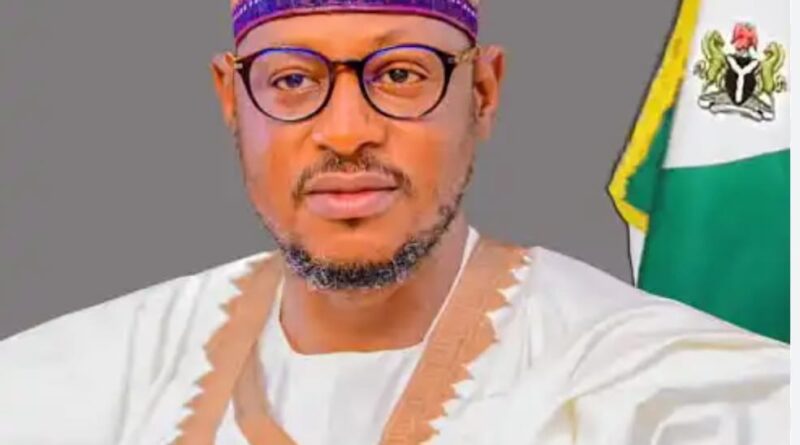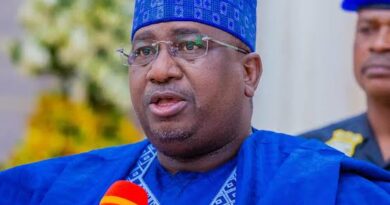Radda Igniting Renaissance in Education, Innovation
…….Katsina embraces a new era of learning through digital innovation and human capital investment
By Fauziyya Lawal, Katsina
In every society that has risen to greatness, education has remained the cornerstone. It is the seedbed from which innovation, development and progress sprout. In Katsina State, Governor Dikko Umar Radda has taken this timeless truth and transformed it into concrete action by launching an ambitious programme designed to reposition education as the true wealth of the state. The recent training of 18,000 teachers and distribution of 20,000 digital tablets marks not just a policy announcement but a bold declaration of intent! an intent to reshape the future of learning, empower teachers and prepare Katsina’s children for the demands of a rapidly evolving world.
The programme reflects a refreshing demonstration of visionary leadership. It is not a routine government intervention but a carefully thought out strategy that addresses the root of educational challenges. By prioritizing teacher capacity, digital innovation, inclusivity and accountability, Governor Radda has shown rare foresight, proving that true leadership is not about quick fixes but about laying sustainable foundations for future generations. His administration’s deliberate focus on education has become a beacon of hope, sending a powerful message that the destiny of Katsina’s youth lies at the very centre of government policy.
Governor Radda’s vision is both clear and courageous. He has acknowledged the challenges confronting education in Katsina, ranging from overstretched teachers and limited access to learning materials, to security threats and the exclusion of disadvantaged children and has chosen to respond with reforms that are both inclusive and innovative. The training of 18,000 teachers through a carefully designed step down approach ensures that knowledge is spread evenly and sustainably across the state. Ninety master trainers, equipped with specialized skills, are cascading their knowledge to thousands of teachers, guaranteeing uniformity in learning outcomes and building a permanent resource base within the system.
By investing in teachers, Radda is addressing the very foundation of education. Teachers are the custodians of knowledge, the mentors who shape character and the drivers of intellectual growth. Their capacity defines the quality of the classroom experience and their motivation determines how well students learn. Around the world, the strength of an education system is measured by the competence of its teachers. In equipping Katsina’s educators with new skills, Governor Radda is equipping an entire generation of students with the tools to succeed in a globalised and competitive environment.
Yet, this initiative goes beyond training. The distribution of 20,000 tablets represents a leap into the digital age. For too long, Nigerian schools have struggled with outdated textbooks, limited resources and uneven access to learning materials. The introduction of tablets, preloaded with lesson plans and digital resources, changes the story entirely. Teachers in both urban and rural areas can now access the same body of knowledge, closing the gap between well resourced schools and those in underserved communities. This move not only enhances teaching delivery but also introduces students to the digital culture that defines the modern economy.
Governor Radda’s decision to embrace technology as part of education reform is visionary. In a world increasingly shaped by artificial intelligence, digital commerce and online learning, students who lack digital exposure risk being left behind. By equipping teachers first, he is ensuring that learners are guided by mentors who are comfortable with the tools of modern learning. The tablets are more than gadgets; they are gateways to a global library of knowledge, accountability tools for supervisors and a bridge between Katsina’s classrooms and the wider world of ideas.
Inclusivity sits at the heart of this programme. Beyond teacher empowerment and digital learning, the government has taken deliberate steps to ensure that no child is excluded from education due to poverty, disability or insecurity. The distribution of 30,000 uniforms to less privileged children is a measure that restores dignity and encourages school attendance. For children living with disabilities, the provision of specialized teaching aids affirms the government’s belief in the principle of leaving no child behind. And with the installation of CCTV cameras in 130 schools, safety is being strengthened, reassuring parents and teachers that education can take place in secure environments.
Another often overlooked challenge in education is supervision, especially in rural areas where schools are spread across vast distances. The distribution of 70 motorcycles to monitoring officers may appear modest on the surface but in practice, it is transformative. For the first time, supervisors will be able to reach remote schools with ease, check on teacher attendance and ensure that reforms are not confined to urban centres alone. This intervention strikes at one of the roots of poor learning outcomes, weak accountability and offers hope for rural children who for too long have been left behind.
The Katsina programme also stands out because of its collaborative approach. It is being implemented in partnership with the World Bank, the Universal Basic Education Commission and other development partners. By bringing international expertise and resources to the table, the state has shown that education reform is too critical to be left to government alone. Such partnerships guarantee sustainability, reduce the risk of policy reversal and allow Katsina to benefit from global best practices while tailoring solutions to local realities.
Radda’s approach to education is rooted in a deep understanding of what true development means. Roads, bridges and infrastructure are visible and important but they do not by themselves guarantee progress. A society’s greatest wealth lies not in its natural resources but in the creativity, skills and innovation of its people. By investing in human capital through education, Katsina is preparing its youth to compete not just within Nigeria but on the global stage.
This initiative is also in harmony with the United Nations Sustainable Development Goal 4, which calls for inclusive and equitable quality education. The alignment with global development priorities signals a state that is forward looking and committed to measuring itself against international standards. Katsina’s reforms could well serve as a model for other states, proving that with political will, strategic planning and strong partnerships, education in Nigeria can be redefined.
The reception of this programme has been overwhelmingly positive across the state. Teachers see it as recognition of their central role in society and parents view it as reassurance that government is attentive to the needs of their children. The overall sentiment reflects one of renewed confidence in leadership, applauding Governor Radda for moving education from the margins to the heart of governance.
Ultimately, the teachers’ training and digital empowerment programme is more than an isolated reform. It is part of a broader vision of Governor Dikko Umar Radda to restore the pride of education in Katsina. It integrates teacher development, digital innovation, inclusivity, safety, supervision and collaboration into a single, coherent framework. Its success will not be measured only by the number of tablets distributed or teachers trained but by the long term transformation of classroom experiences, student outcomes and societal progress.
If sustained and nurtured, this initiative could become the defining legacy of Governor Radda’s administration. A legacy not of temporary structures but of permanent impact on human minds. In planting the seeds of education reform today, he is cultivating a future where Katsina’s youth can thrive in knowledge, compete in innovation and contribute to the prosperity of the state and the nation.
Governor Dikko Umar Radda has reaffirmed that the truest measure of leadership is not how much wealth is amassed but how many lives are transformed. In making education the cornerstone of his development agenda, he has written a chapter that history will not forget, a chapter where the minds of Katsina’s children became the state’s greatest treasure.





